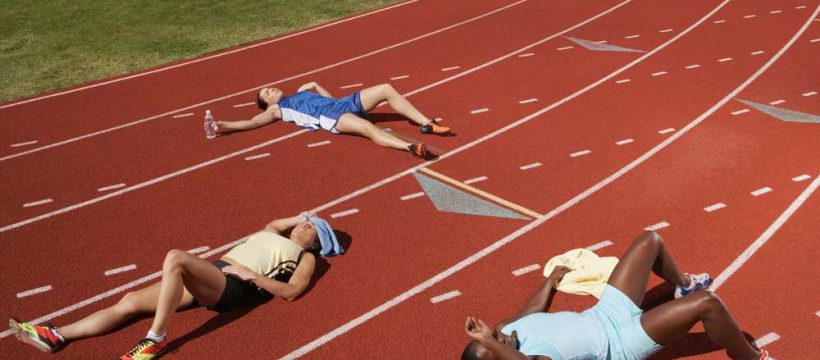Too much exercising can lead athletes to make bad decisions, according to a new study released in the Journal Current Biology.
The study revealed that endurance athletes who overtrained made more impulsive choices when it came to their finances, eating habits and self-care. When the overworked athletes were allowed to choose between an immediate or delayed reward, they often opted for instant gratification, the study revealed.
“For example, they were asked whether they preferred $10 now or $50 in six months,” study author Bastien Blain, a research associate at University College London, told CNN. “And those who overtrained were more likely to choose the immediate reward.”
As part of the research, one group of endurance athletes was required to complete a “mild form of overtraining” for three out of nine weeks, while another section completed a normal nine-week training program. A total of 37 male triathletes participated.
The athletes who completed the more intense training regimen showed less activity in the lateral prefrontal cortex region of their brain, which aids in cognitive control, MRI scanning revealed.
“Cognitive control in this situation is the capacity to maintain exercise despite things like muscle pain,” Blain told CNN. “And what we found is there is an intellectual component involved in exercising, and it has a finite capacity. You cannot use it forever.”
The first group also performed worse on a cycling test at the end of their training — pointing to overtraining syndrome, a form of burnout that causes athletes’ performance to decline when they overexert themselves, according to the study.
An example of that is long-distance runner Alberto Salazar, whose performance suddenly went downhill after winning the New York City Marathon three times and the Boston Marathon once back in the ‘80s, Blain told NPR.
“Probably, [it was] something linked to his brain and his cognitive capacities,” the researcher said.
The study does not reveal how over-exercising might affect non-athletes, Dr. Marc-Andre Cornier, associate director of Colorado University’s Anschutz Health and Wellness Center — who was not one of the study’s authors — told CNN.
“This is potentially very important for the higher-end athlete who is overdoing it,” Cornier said. “But does this have anything to do with the average Joe going to the gym? You can’t conclude that from this study.”
Source: Read Full Article
